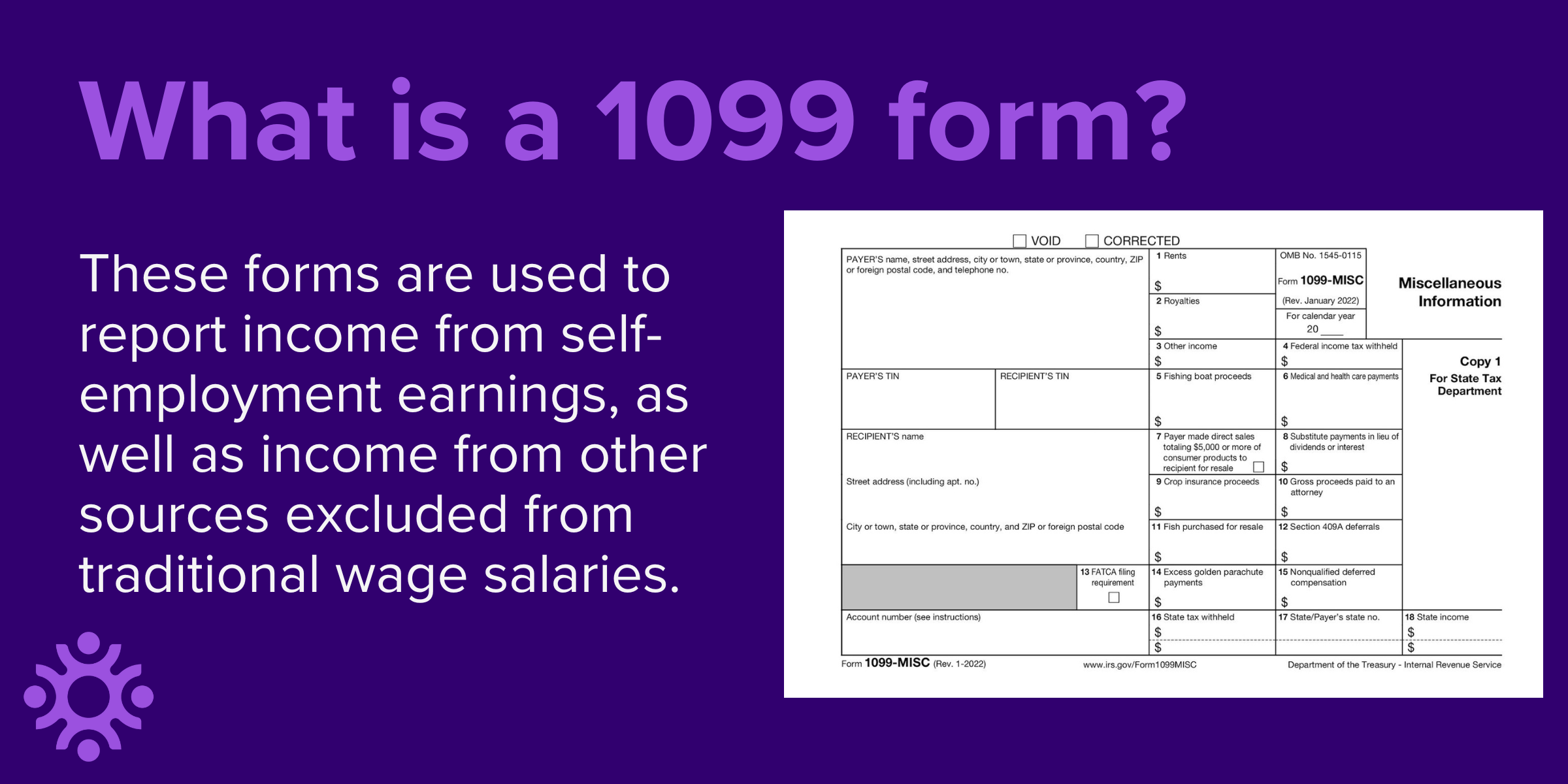Navigating the world of tax returns is not always easy, particularly considering the many different forms and instructions one might encounter. Among these, the 1099 form is an essential document to comprehend. In this blog post, we will break down the definition, uses, and importance of the 1099 form, focusing on its relevance for new hires in a dental practice setting.
What is a 1099 Form?
The 1099 forms come to us courtesy of the Internal Revenue Service (IRS). Named after the section of the tax code they represent, these forms are used to report income from self-employment earnings, as well as income from other sources excluded from traditional wage salaries.
Stated simply, if you pay someone who is not your employee $600 or more during the tax year, you will generally need to provide him or her with a 1099 form, illustrating the amount you paid.
The 1099 form is important for several reasons. First, it will allow you to track the amount of income you have paid out in a given year. Second, the 1099 form can help reduce your tax liability by reporting this income as business income instead of wages or salary, saving you money on Social Security and Medicare taxes that are withheld from employee paychecks.
Who Needs Them?
In a dental practice, 1099 forms are beneficial for all individuals who are not officially company employees. This includes independent contractors such as part-time workers, freelancers, and consultants.
If a dental practice hires an independent contractor and pays them more than $600 during the fiscal year, the dental practice should send them a 1099-NEC form by January 31st of the following year.
Please Note: Employees who receive a salary or wage need not concern themselves with 1099s. Their earnings are reported on W-2 forms.
What All Dental Practices Should Know About 1099
It’s vitally important to understand the ramifications of improperly filing 1099 forms. Missing a 1099 form or providing inaccurate information can potentially lead to penalties from the IRS. In the event of an IRS audit, robust records of all 1099 forms sent and received can be invaluable.
For dental practices, it is crucial to collect a completed W-9 form from every independent contractor. The W-9 form collects the contractor’s tax identification number which is required when filling the 1099 form. In contrast to W-2 employees, taxes are not directly withheld from 1099 workers’ compensation. Therefore, it becomes the responsibility of the contractor to manage this aspect of their financial obligations.
According to the IRS, for tax purposes, a contractor is an individual who performs services for a company and does not have an employment relationship with that company. For example, if your dental practice hires a cleaning crew to come in once a week and mop the floors and clean off equipment, this would be considered an independent contractor relationship.
Different Types of 1099 Forms
The 1099 series includes a variety of forms; each of these illustrate different types of income taxpayers might receive throughout the year. Some common forms include:
1099-MISC: For miscellaneous income.
1099-INT: Used to report interest income.
1099-DIV: Here, dividend income is reported.
1099-R: Depicts payouts from pensions, annuities, retirement or profit-sharing plans, IRAs, and some other insurance contracts.
1099-NEC: This is a newly reintroduced version that captures non-employee compensation.
There are different types of 1099 forms because the Internal Revenue Service (IRS) intends to capture various sources of income not related to regular wages, salaries, and tips. Each type of 1099 form is designed to report distinct types of income, helping taxpayers and the IRS to distinguish between these sources when filing tax returns. For instance, 1099-INT is used to report interest income, 1099-DIV is for dividends, 1099-NEC specifies non-employee compensation, and so on.
The diverse nature of 1099 forms helps streamline the process of reporting income for both payers and recipients, as well as ensuring accurate tax collection and compliance.
Each type of 1099 form has distinct instructions about when they must be issued and to whom. Checking with your accountant or the IRS can give you more clarity if you are unsure.
Let HR for Health Take Care of Your 1099 Forms
Dealing with 1099 forms can be a daunting task, especially when you hold the responsibility of running a dental practice. As part of this commitment to your practice, we, at HR for Health, want to ease the burden of managing HR tasks and will be glad to assist with all your 1099 needs.
By partnering with us, you will have access to the latest technology and services in HR management. When it comes to 1099 forms, we can handle everything from initial setup and distribution to ongoing maintenance of the system. This leaves you free to focus on running your dental practice while we take care of compliance issues that may arise.
Our cloud-based HR software handles the ins and outs of 1099 management, ensuring that you comply with IRS guidelines while saving time and resources. Let us help you streamline your practice’s HR while you focus on delivering the best dental care. Contact us today to get started!
Common Questions About 1099 Forms:
Q: What is a 1099 form?
A: A 1099 form is an Internal Revenue Service (IRS) tax form used to report various types of income other than wages, salaries, and tips.Q: Why have I received a 1099 form?
A: If you have received a 1099 form, it means that you were paid $600 or more during the tax year from a source other than a traditional employer.Q: What do I do with the 1099 form?
A: If you receive a 1099 form, you must report the income on your personal tax return, often Schedule C if you are a sole proprietor.Q: What are the different types of 1099s?
A: There are several types of 1099 forms such as 1099-MISC, 1099-INT, 1099-DIV, 1099-R, 1099-G, 1099-NEC, among others. Each serves a specific purpose and reflects different types of income.Q: Who needs to file a 1099 form?
A: Any business that pays $600 or more to a non-employee, or independent contractor, must file a 1099 form.Q: What happens if I don’t receive my 1099 form?
A: Even if you do not receive a 1099 form for work performed, you are still responsible for reporting that income on your tax return.Q: What are the penalties for not filing a 1099 form?
A: Businesses will face penalties ranging from $50 to $270 per form for failing to issue a 1099, with a maximum of $1,113,000 a year for smaller businesses and $3,339,000 for larger businesses.Q: Do I have to pay taxes on 1099 income?
A: Yes, 1099 income is self-employment income and is therefore subject to self-employment tax.Q: How do I send back a 1099 form?
A: As an independent contractor, you don’t need to send back the 1099 form to the IRS. It is the payer’s duty to do so. You only need to report the income on your tax return.Q: I have lost my 1099 form, what should I do?
A: If you’ve lost your form, get in touch with the issuer for a replacement. If that fails, contact the IRS for guidance.
Remember that for specific situations or additional tax guidance, you should consult with a tax professional or the IRS directly.



